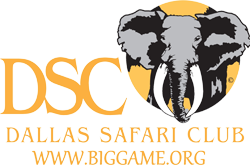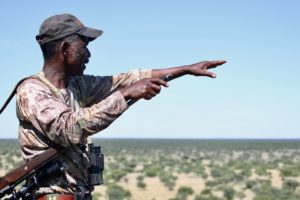
Hunting is critical for conservation and sustainability as well as uplifting communities. As you will see from the proven information below, we do not need to shy away from talking about this passion for fear of misunderstanding or resistance.
Many, if not most, people around the world do not understand the positive impact of hunting. So as hunters it is important that we educate others about the benefits hunting brings both to the natural world and humankind. We need to be able to communicate the truth logically.
You may already be sharing your own sustainable hunting experiences, or you may have never thought about what you would say to someone who doesn’t agree with you. Either way, we want to share with you truthful tools to help you educate others whether they simply are ignorant of the benefits of hunting or are actively against hunting.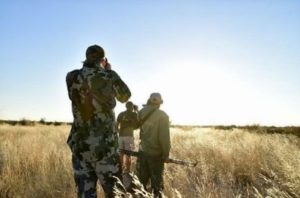
Below we are sharing some interesting facts to help you explain how hunting is sustainable, merciful, and supports communities around the world.
Hunting and Sustainability:
Hunting protects younger, reproductive members of the species. As the males in a species age, they often become more aggressive and territorial. Males which are post-reproductive will attack younger males if they infringe on their females or territory. These fights can go either way, but too often the older males injure or kill the younger, leaving fewer reproductive males in the ecosystem.
Hunting, which is the pursuit of these post-reproductive and mature males, helps eliminate the threat the older males present to the younger reproductive ones.
Hunting helps manages populations. For many species, especially those in the dangerous game category, hunters are the only predators. If we are not helping to manage species numbers, they will overpopulate.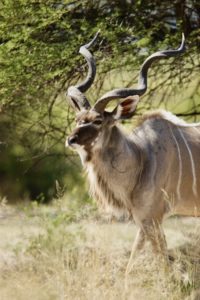
Overpopulation leads to many negative consequences: starvation of animals as the habitat is decimated, the decline of other species because of the absence of food, and an increase in species encroachment into human habitat which can lead to injuries or death for both parties. Hunting allows for the thought-out, necessary harvest of animals to keep all populations healthy, so these consequences do not happen.
- Hwange National Park is a great example of this point. During our team’s last trip there, our guides explained to us that this park was home to nearly 3x the number of elephants than they could reasonably hold. Because of this, hundreds of elephants were starving to death and other species were suffering because the elephants were destroying the trees.
The destruction of trees led to the decline of other plants that needed shade to survive, which led to the over-grazing of grass by other species, which led to the decline of food for other species who then starved to death.
During our visit we were amazed by the number of elephant skeletons we saw. Our guides proceeded to tell us that most of these animals had starved to death because of overpopulation.
- Another example is New Zealand. There are no natural predators in New Zealand, so hunting is the only way to control the populations of red stag, Himalayan tahr, chamois, elk, possums, and more.
Let’s run with the possums for this example. There are millions of possums in New Zealand – seems harmless right? Think again. Because there are so many and no predators to kill them, they ravage the farmlands and greenery of the country every night. This devastates the food supply for other species and humans.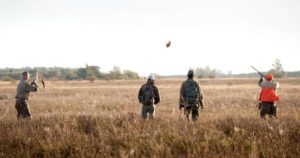
They have become such a problem that the New Zealand government is having to step in to figure out ways to shrink the population. Their plan is the Predator Free 2050 initiative where they will eradicate possums, rats, and stoats from their country by any means necessary.
Hunting encourages communities to protect the wildlife around them. For most people living in cities, it is hard to imagine what it would be like to live in an area where wildlife regularly entered and harmed you or your property, but in many areas around the world, this is common.
A leopard might come in the night and kill the cow you rely on for milk or meat. Baboons might sneak into your garden and eat the produce you are growing for your family to eat or sell. A crocodile may harm your child while they bend down to get water from the river.
These negative, sometimes harmful, interactions between man and beast can lead to attempts by the community to irradicate the wildlife around them, including animals that are not causing problems. They do not see the wildlife around them adding value to their lives, which takes away the desire to protect it.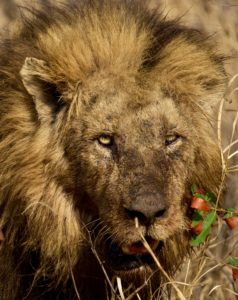
But what if protecting the wildlife around them brought value to a community in the form of revenue, jobs, and food to the community?
Hunting provides these things to communities. It encourages the community to take care and ownership of the wildlife around them, because if there is no wildlife then there is no hunting and thus no money for the community. The immense monetary value that hunting provides encourages communities to come up with other creative ways to defend their property and community from potential harm without eradicating the wildlife. They know these other solutions will allow them to prosper from the financial gain that hunters bring in as they responsibly harvest animals.
- Here is an example of what happens when hunting is banned, thus taking away the value of wildlife to local communities: the decline of lions in Botswana.
Hunting raises money for anti-poaching and wildlife protection. Poaching is the illegal killing of an animal. Around the world, millions of dollars go to anti-poaching and wildlife protection as a direct result of hunting. In any country you are hunting in, you pay a fee for hunting licenses, community fees, tags, etc. The revenue allows countries to invest in anti-poaching and support the continuation of endangered species to ensure populations are managed and see growth.
Because hunting takes place in rural areas, it allows outfitters to discover poaching schemes that may not have been discovered by eco-tourism companies often operating in small, more developed areas with more established infrastructure.
Hunters also support organizations such as Dallas Safari Club and Safari Club International which have donated millions of dollars to conservation 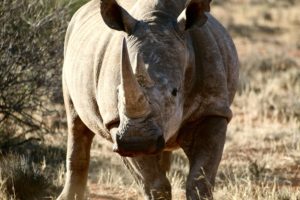 efforts as well as other wildlife initiatives, legislation, and education.
efforts as well as other wildlife initiatives, legislation, and education.
Hunting maintains wild land. Hunting lands usually span at least a few hundred acres, but more likely several thousand and more. These types of properties protect wildlife because they are not being pushed out due to human expansion or agriculture/farming.
And not only are they not being pushed out, but the property managers are most likely doing everything in their power to create ideal living conditions for the wildlife. If hunting did not exist or was banned, these properties would be bought up and the wildlife would be pushed out or killed to make room for the buildings or farming that was created.
Hunting and Mercy:
If someone asks you how you could be so cruel as to kill an animal by shooting it, you should ask them if they have ever watched an animal 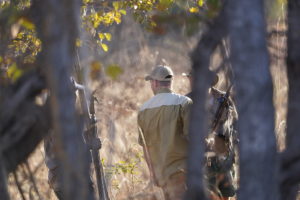 starve/dehydrate to death, be killed by a predator, or be eaten alive by a predator. Those are the options for animals in the wild.
starve/dehydrate to death, be killed by a predator, or be eaten alive by a predator. Those are the options for animals in the wild.
Ethical hunting is much more merciful than the alternatives.
Yes, animals can be wounded. That is tragic and the outcome no one wants. For this reason, we always emphasize to every client that they have the responsibility to the animal they are hunting to spend time at the shooting range and/or shooting schools, so they are confident in their shooting skills.
Hunting and Communities:
Hunting provides food to local communities. The meat from hunting is either eaten by the hunter or donated to local communities. In some cases, this meat may be the only protein a community receives. These donations help communities flourish in areas or situations where they would otherwise experience squaller eating conditions.
Hunting provides tourism income. Hunting usually takes place in rural areas which would not otherwise be visited. This provides  communities in the area with tourism income they would not otherwise have. Whether it is shopping at gas stations or local souvenir markets, this gives the entire community an economic boost.
communities in the area with tourism income they would not otherwise have. Whether it is shopping at gas stations or local souvenir markets, this gives the entire community an economic boost.
Hunting provides jobs to locals. Often, the staff of hunting lodges are from nearby communities that are, as stated above, rural. Hunting outfitters provide jobs in areas where there are likely few opportunities.
Specifically in Africa, it is important that hunting and eco-tourism work in tandem, but it has often been found that commercial eco-tourism destinations do not provide as many jobs to the local communities as hunting does. Eco-tourism relies heavily on infrastructure and proximity to travel hubs. This keeps these businesses contained to certain areas of a country, which means the jobs are limited to those areas. Hunting properties on the other hand span across a country into highly rural areas where jobs are not readily available to locals.
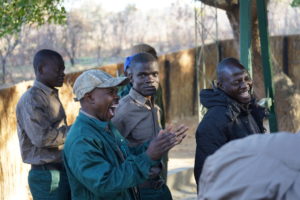
Hunting builds local communities. Our longstanding outfitters around the world go beyond feeding locals, providing tourism revenue, and providing jobs. They have built schools, built children’s homes for vulnerable or orphaned children, bought school buses, and more. They have also partnered with many of our clients to buy blankets, toys, school supplies, bedding, towels and more.
Hunting builds communities at large. Many hunting outfitters partner with organizations such as Make a Wish, Wounded Warriors, and Outdoors Tomorrow Foundation. They donate hunts to these organizations and host fundraisers to support children and veterans beyond their local communities. They provide these visitors with once-in-a-lifetime experiences that they could either not afford or may not have again due to health concerns.
We hope this information helps you have engaging, educational, and factual conversations with anyone you encounter who is either anti-hunting or simply not aware of the positive impact of hunting.
Other Sources to Read:
African Wildlife Should Belong to Africans
Why Trophy Hunting Helps Protect Animals
How the Ban on Lion Hunting Killed the Lions – TEDx
Banning Trophy Hunting Will Exacerbate Biodiversity Loss






